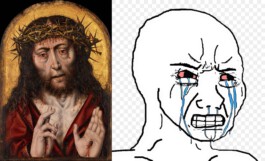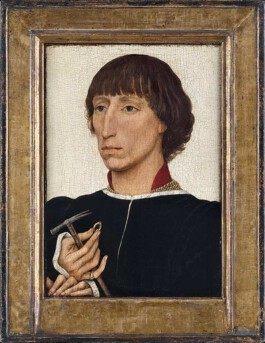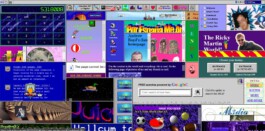
Scroll to learn about what we do and why we do it.
Our approach to cultural transmission is based on the theoretical works of many different disciplines: Cultural theory, sociology, archaeology, media theory, ethnology, history, didactics, and material culture studies help us understand our digital heritage and shape our practice.
But let us take a step back. Because, when thinking about the Internet, the most important insight is quite simple:

What? Yes.

In public discourse, the Internet is often staged as a cohesive entity that has fixed rules and its own logic. But the Internet is just an infrastructure, first and foremost. Users, companies, institutions, governments, and others act within it. Their motives and actions are completely different.
Yet we still use the term "Internet" to make generalized statements about all the different participants of the network. This has to stop.
It's not "the Internet" that's "bad for our attention span" — highly effective algorithmic content recommendations, made possible by systematic storage of user data are responsible (amongst other things). It's not "the Internet" that's supposedly eroding democracies or helping to create them.
It's people or companies or institutions or governments acting in the network. And there is nothing inevitable about how they act and what they choose to do.

The Internet is a network for contemporary cultural expressions. We act within the web and reproduce and produce cultures in the process — making it a virtual cultural space.
The network also provides access to the artifacts and cultural assets of the past. Many museums, archives, or libraries have digitized large parts of their collections and made them available online. This very confluence of past and present represents our new digital heritage: We must protect and transmit it for future generations.



You are here

Artifacts are manifestations of history and thus culture. Artifacts help us to interpret the past and understand the present. They create identity and meaning and shape and enable (cultural) action.
Almost anything you can find online is representative of a culture. Whether it's your parents' old Facebook posts or the metadata from a Google search — acting online means acting culturally.
Our job is to find exciting and relevant narratives and translate them into digital cultural artifacts. We want to create objects that represent digital cultures appropriately, and thus actively transmit them.
We are constantly working to dissolve any kind of bias in our platform. Part of that involves engaging our community: If you have suggestions for possible artifacts, you can send them to us here.



Digital cultures are highly impermanent: They are not only subject to rapid technical change, but in most cases also to the economic interests of large Internet companies. As such, economic considerations outweigh cultural ones.
The deliberate demises of platforms like Vine or GeoCities show that we cannot rely on platform operators for conservation. This is why the Internet Archaeology Institute exists: We believe that digital cultures must be preserved and protected in order to be transmitted.










Scroll to jump to top ↓